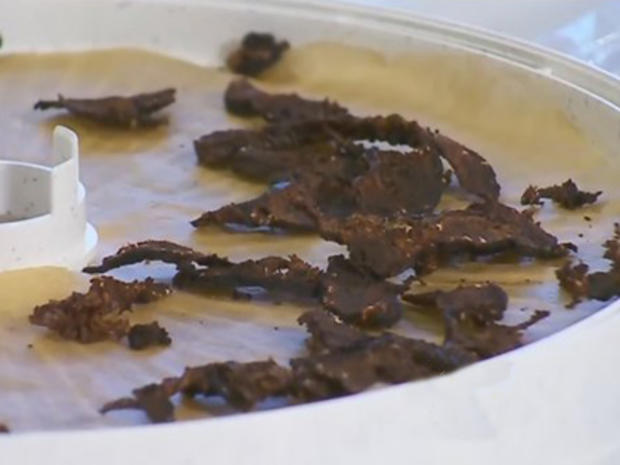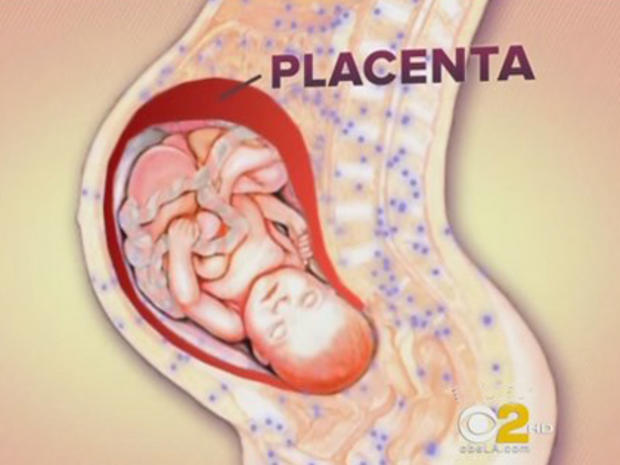More Mothers Using Placenta Pill To Combat Postpartum Depression
LOS ANGELES (CBS) — Having a baby changes everything.
But for one in five mothers, those changes involve a serious, and often silent, disease -- postpartum depression.
CBS2's Lisa Sigell reports on how some women are trying to avoid that fate using a pill derived from their own baby's placenta.
Anne Ferguson, a mother of two, prepares placenta pills by boiling, slicing and dehydrating the organ and then pureeing what's left into a fine powder. The powder is capped in a small pill in a process known as placenta encapsulation.
"So, what a lot of moms are choosing to do now is to take their placenta home after they have a new baby and have it prepared into these little capsules that they can then ingest," Ferguson said.
The placenta is a temporary organ that connects a developing fetus to the uterine wall, via an umbilical cord, allowing for the baby to receive nutrients and other essential compounds from the mother. The placenta also releases oxytocin, a hormone that helps during birth.
Ferguson said putting those nutrients back into your body helps during the postpartum period, when fluctuating hormones can spark depression.
"Many mother have found it gives them more energy, believed to help with milk supply, and increase your iron levels," Ferguson said.
Ferguson began offering the service last year after she became what's known as a doula, or birth coach.
"I just think it makes so much sense biologically. Almost all mammals eat their placenta right after they give birth," Ferguson said.
The doula receives up to 10 placentas a month from mostly first-time mothers.
"I do feel it has helped," said Stephanie Johnson, a new mother whose own mother and sister experienced postpartum depression. Unlike those women in her family, Johnson said she's feeling happy and healthy at home with her baby.
The Federal Drug and Food Administration said it doesn't keep tabs on the practice "given that human tissue is not food or a dietary ingredient and that it may transmit disease."
The American College of Obstetricians and Gynecologists said it doesn't have an opinion since it is a largely unregulated practice that has not been given much study.
Beverly Hills OB/GYN Peter Weiss said he considers the practice dangerous.
"You can take the placenta home -- there's no problem with that -- but ingesting it?" Weiss said.
"The placenta can contain many diseases, from bacterial infections, hepatitis, you name it, it can carry it," said Weiss, adding, "And for somebody to think that they're going to take it home, and just because it's a natural product makes it's safe, that's absolutely wrong."
"Postpartum depression is a real disorder. You cannot ignore it and you can't treat it by just taking some placenta pill," Weiss said.
Ferguson disagrees, continuing to offer the service she believes helps new mothers. She said she knows it's not a magical solution to postpartum depression: "Placenta encapsulation is a small, one piece of the puzzle."
She said one placenta usually produces approximately 120 pills, for a $150 fee.
Consuming the placenta is common in some cultures. The placenta pills cost on average $150-$300 in the U.S.





